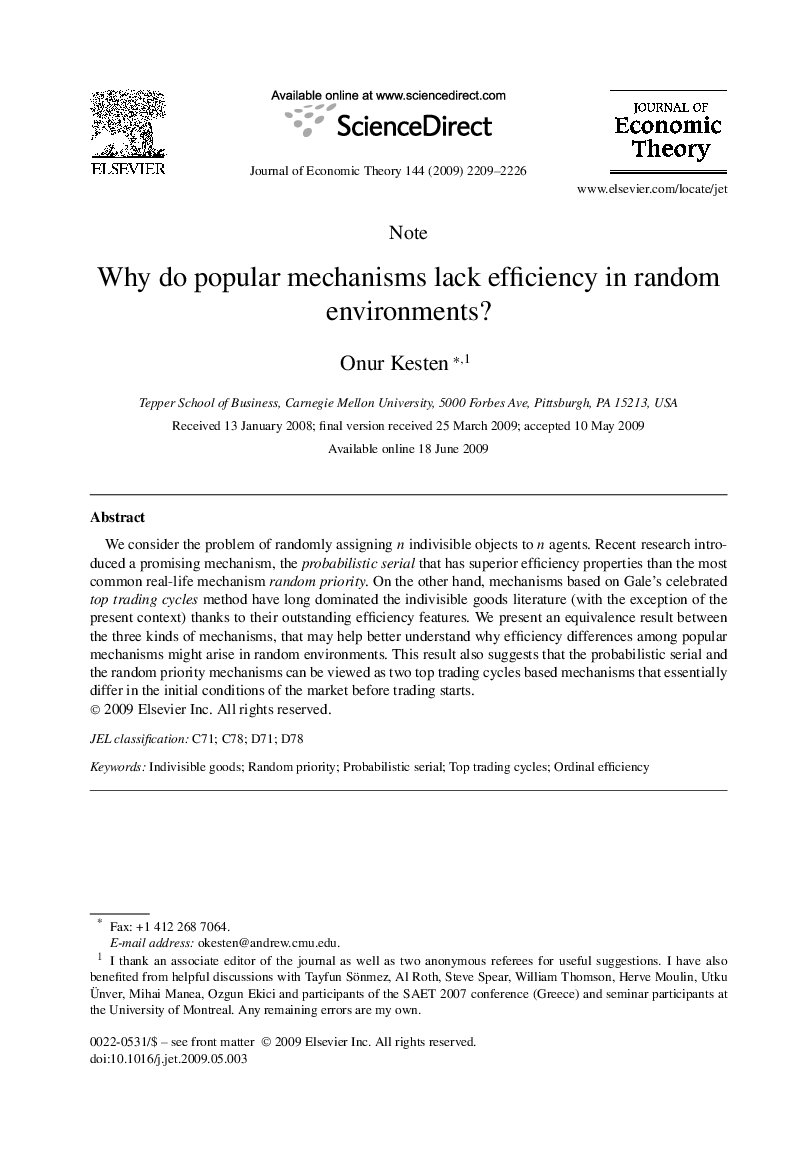| Article ID | Journal | Published Year | Pages | File Type |
|---|---|---|---|---|
| 957137 | Journal of Economic Theory | 2009 | 18 Pages |
We consider the problem of randomly assigning n indivisible objects to n agents. Recent research introduced a promising mechanism, the probabilistic serial that has superior efficiency properties than the most common real-life mechanism random priority. On the other hand, mechanisms based on Gale's celebrated top trading cycles method have long dominated the indivisible goods literature (with the exception of the present context) thanks to their outstanding efficiency features. We present an equivalence result between the three kinds of mechanisms, that may help better understand why efficiency differences among popular mechanisms might arise in random environments. This result also suggests that the probabilistic serial and the random priority mechanisms can be viewed as two top trading cycles based mechanisms that essentially differ in the initial conditions of the market before trading starts.
